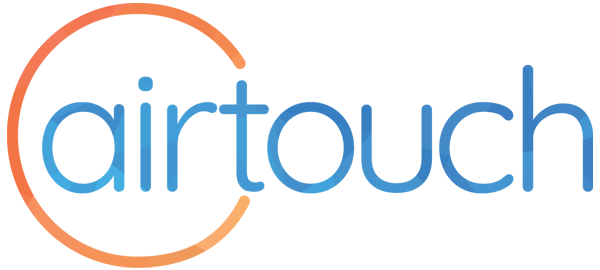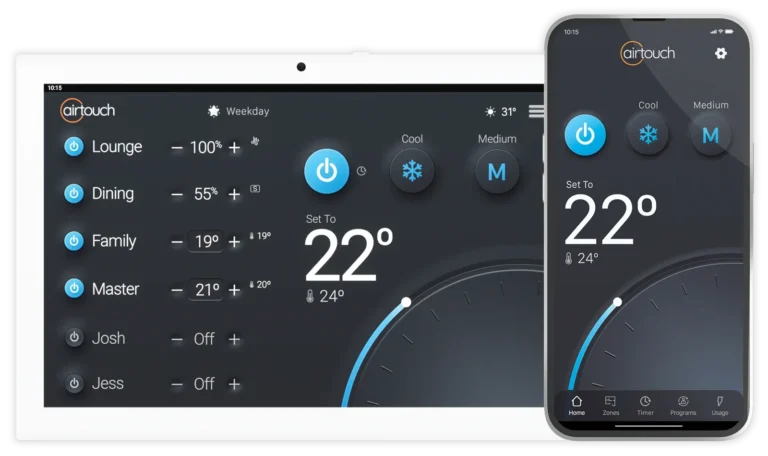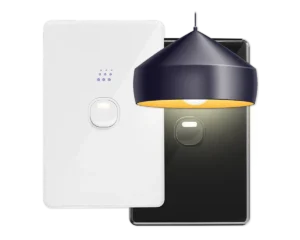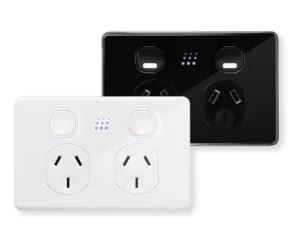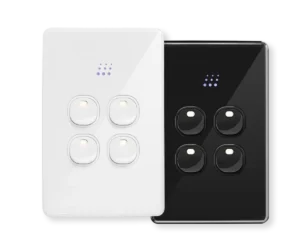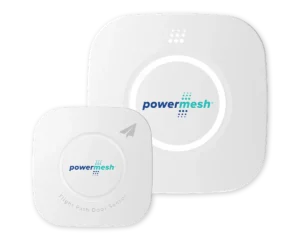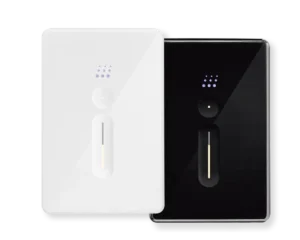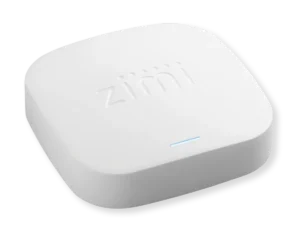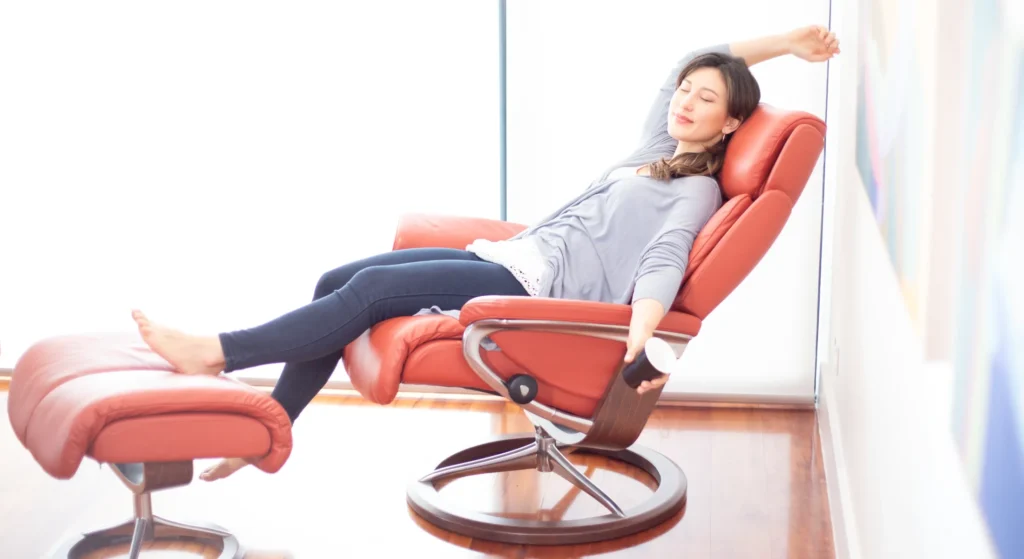What does that mean?
Reverse Cycle: An air conditioner that can provide either cool or warmed air depending on the mode you have it set to.
Capacity & Output: An AC system’s output power is normally measured in kW (kilowatts), with one value given for the cooling capacity and another one for heating.
It is very important to select the correct capacity size for your needs. If you choose a unit that doesn’t have enough power then you won’t be able to heat or cool your whole house or reach the desired set point temperature because it doesn’t have the capacity for your area.
On the other hand, if you select one that is too strong it could be powering up and shutting down too often. This could increase the machine’s general wear, and not be as energy efficient as you may like. We recommend having a chat with your installer for help in selecting the right size for your property, taking into account its size and design.
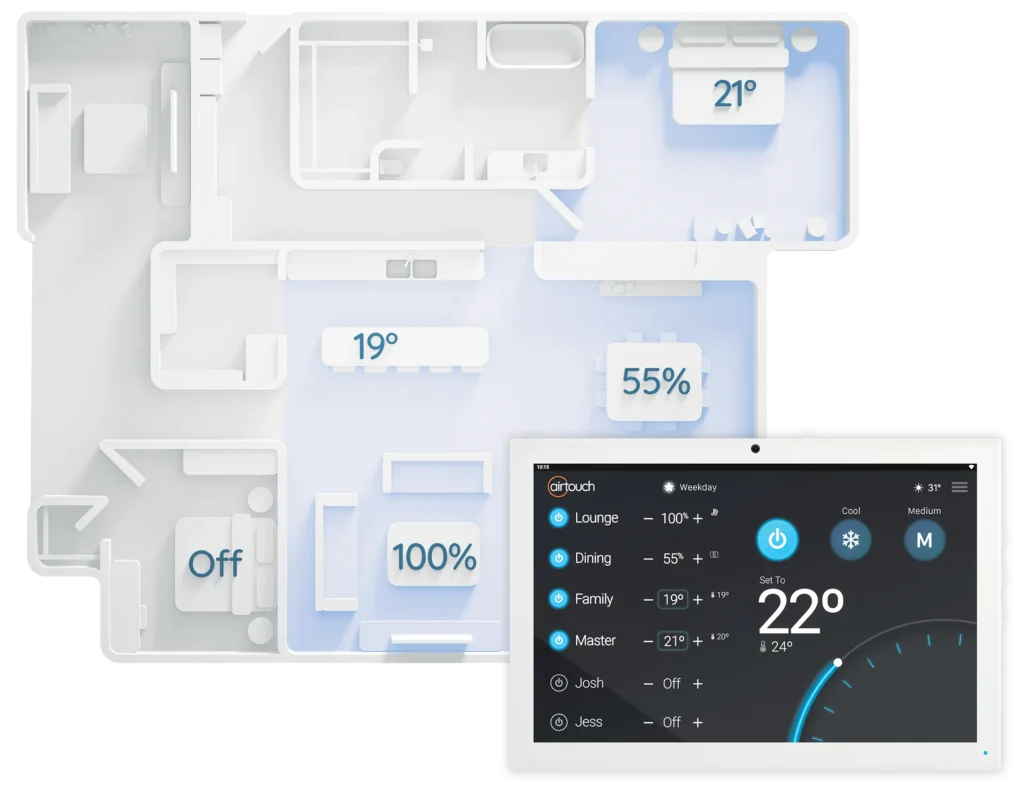
Cool down in Summer…and Warm up in Winter
Reverse cycle lets you cool your house in summer or warm it in winter by using an outdoor and indoor unit that work together in unison, exchanging refrigerant through copper pair coil to change the temperature of the air inside the house as desired.
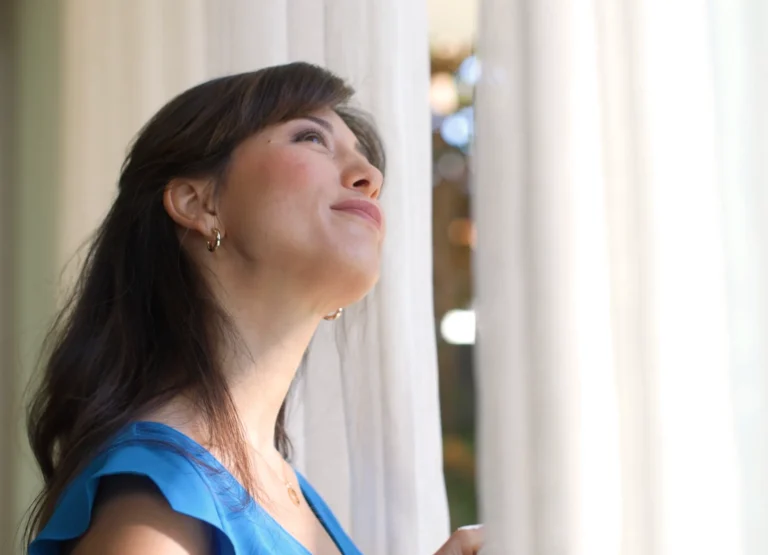
It works by drawing air in through the return (intake), and over a coil filled with the refrigerant from a compressor, that is warm or cold depending on the mode you have the system switched to.
This conditioned air is then distributed.
Comfortable & Discreet
The indoor unit is installed where it is hidden out of sight, normally in your roof space, and connected to a network of ducting linked to the outlets placed throughout the building.
Because of this, they tend to be quiet and don’t affect your home’s aesthetics, plus they can be enhanced with zoning, where your house is divided up into different areas to let you vary the airflow throughout the building.
You can turn the airflow on or off or tweak it as you want to your preferences. The technology uses dampers to vary the flow which open and close incrementally installed as a part of your ductwork.
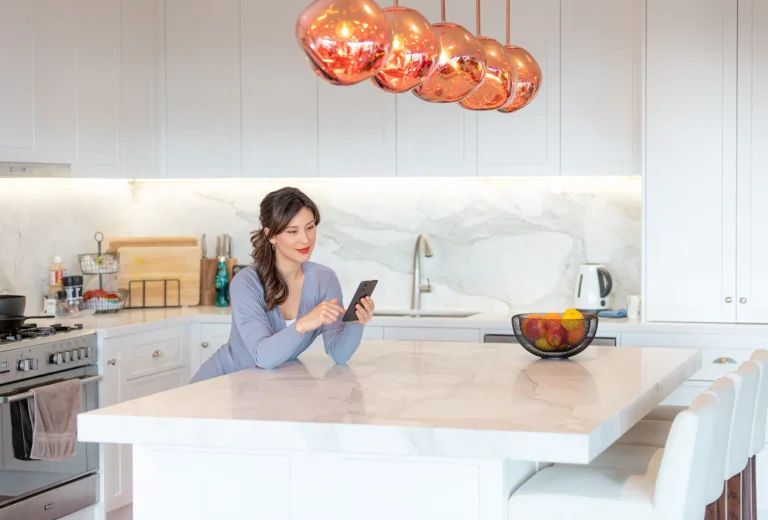
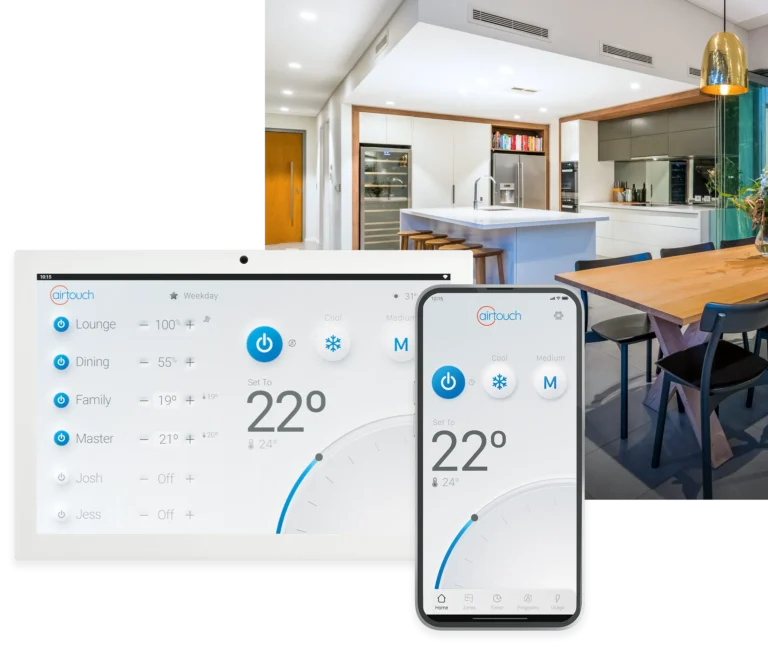
With zoning technology, because you get to choose to run the air conditioning just where you need it, you can potentially save energy by turning it off for areas you are not using. Learn more about zoning.
AirTouch takes zoning up to the next level by allowing you to turn on or off and also adjust the airflow in 5% increments for precise comfort in up to 16 zones all from your touch screen on the wall, mobile device app or smart assistants such as Google or Amazon.
Suitable for almost any home
Ducted systems can either be installed when you are building a new house, or often also retrofitted into an existing property by your installer.
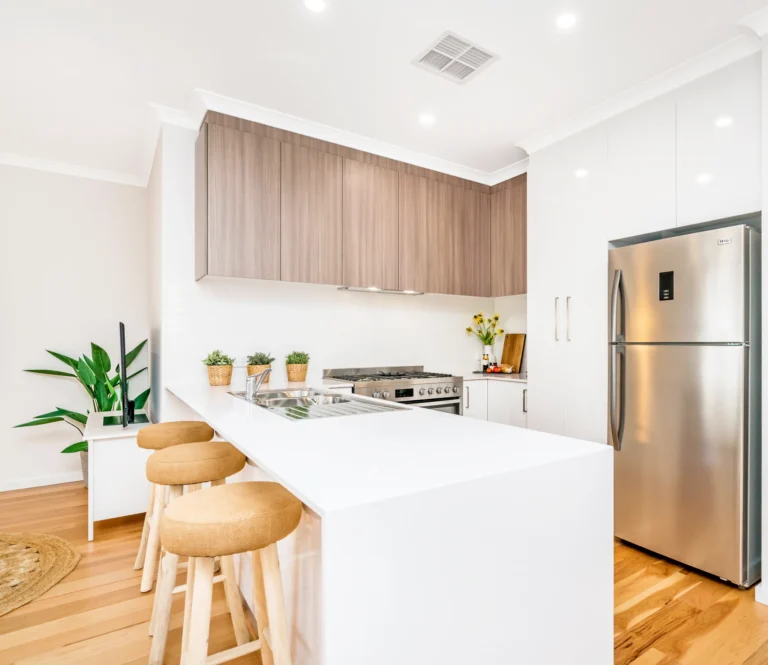
Your outlets (aka diffusers) in the ceiling are placed away from the doors of each room so the conditioned air flows back through the entire space to the return, which is generally in a central location.
That is why it is really important that you remember to leave the door of an on zone open for this all to work properly.
This technology is also efficient. In cool mode, the refrigerant used absorbs warmth from the air passing over it in the indoor unit and is pumped to the outdoor, where the heat is then dispersed.
AirTouch gives you a simple, yet advanced, single point of control for one or even multiple ducted or VRF installations* through a touch screen or app to change the mode from cool, heat, to automatic or fan only as well as the temperature and fan’s speed.
Reverse cycle hardware lets you specify a preferred ‘set point’ temperature for the conditioned air.
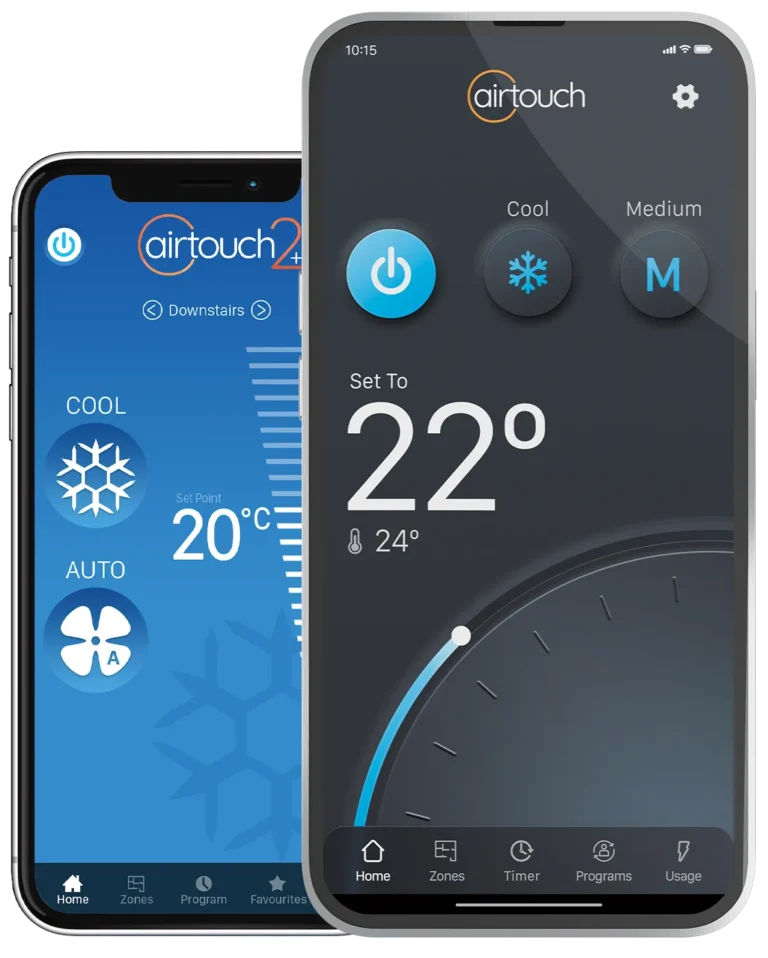
Keeping the Return Air Clean
Cleaning and maintaining your return air grille and filter is vitally important, and it is a quick bit of maintenance you can carry out to help improve your comfort and efficiency with less inhibitors for your system.
See how simple it is to do in this video, or review this support article for an easy step by step guide.
